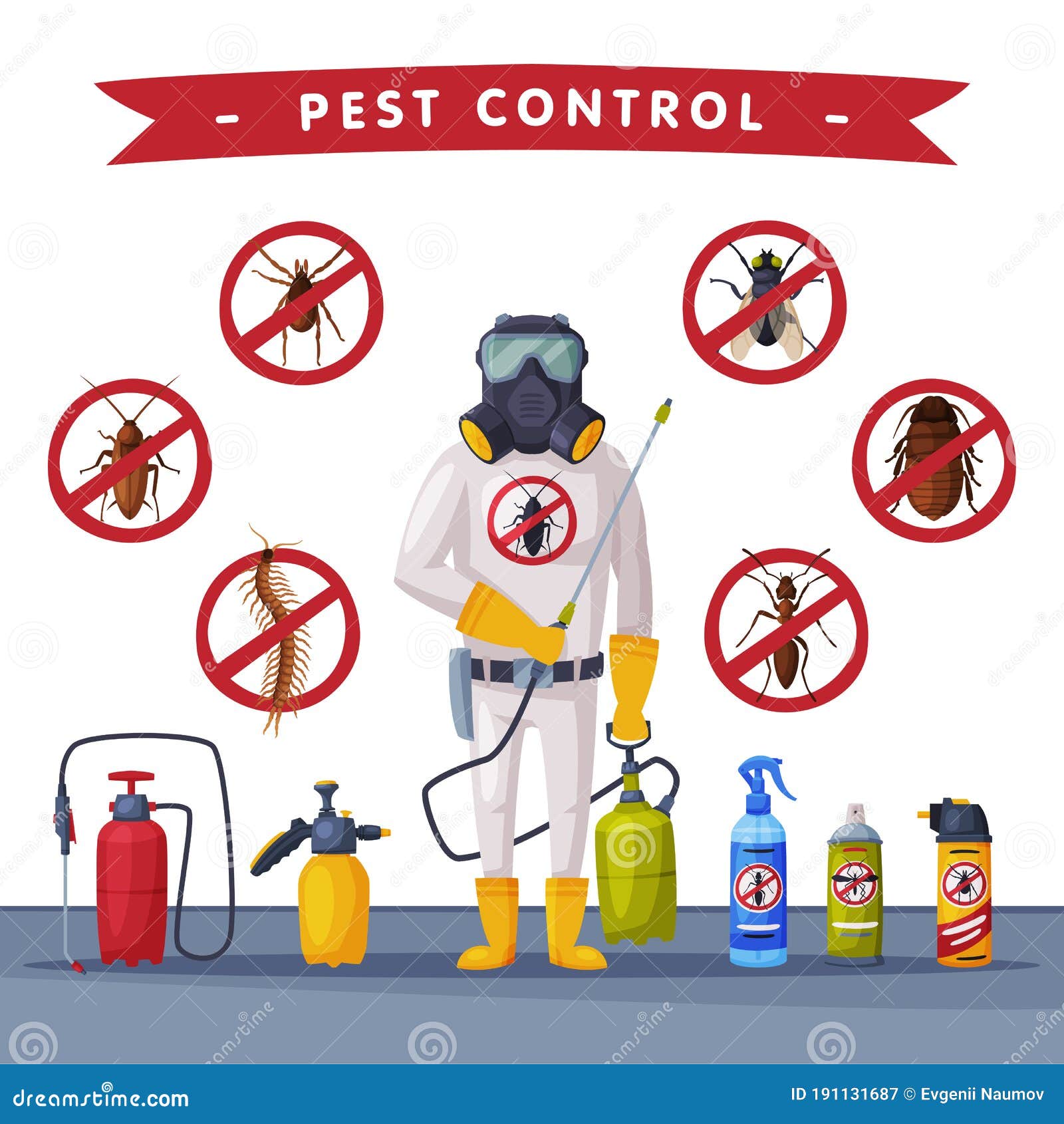Discover the Relevance of Pest Control in Maintaining a Healthy And Balanced Environment and Therapy Strategies
Bug control plays a vital function in protecting not just human health and wellness yet additionally the fragile balance of our communities. As we discover the implications of insect control techniques, it ends up being critical to consider both the immediate benefits and the long-term sustainability of our atmosphere.
The Duty of Parasites in Environments
Parasites, typically seen only as annoyances, play a diverse duty in ecosystems that is crucial for preserving ecological equilibrium. They contribute substantially to different ecological processes, consisting of pollination, vitamins and mineral cycling, and insect control. Many insect varieties, such as and butterflies, are crucial pollinators for a vast array of plants, which in turn supports biodiversity and food manufacturing.
In addition, parasites offer as target for countless predators, creating an important link in food internet. This interdependence makes sure the survival of different varieties and assists manage populaces within ecosystems. In addition, decomposer bugs, such as specific beetles and fungis, contribute in breaking down raw material, hence enhancing soil and assisting in vitamins and mineral recycling.
On the other hand, while pests can be advantageous, their overpopulation or intrusion right into non-native environments may disrupt these eco-friendly functions. This complexity highlights the relevance of comprehending parasite characteristics, as efficient bug monitoring methods must consider both their environmental roles and potential influences on human tasks. Balancing pest presence while reducing damage is crucial for maintaining the honesty of environments and guaranteeing agricultural productivity.
Health And Wellness Risks Connected With Pests

The visibility of parasites in different environments expands beyond their environmental duties, as they also present considerable wellness threats to people and animals. Numerous parasites, including rats, pests, and parasites, are providers of diseases that can have severe health and wellness ramifications. For instance, rodents are recognized to send hantavirus and leptospirosis, both of which can lead to severe respiratory and kidney concerns, respectively.
Insects such as insects and ticks are well known for spreading vector-borne conditions like jungle fever, dengue fever, and Lyme illness. These illnesses can result in high morbidity and mortality prices, particularly in at risk populations. Furthermore, parasites like cockroaches and bedbugs can worsen allergic reactions and bronchial asthma, contributing to breathing troubles in individuals, especially those with pre-existing conditions.
Additionally, the visibility of pests can bring about emotional stress and pain, impacting overall well-being. Contamination of food and surface areas by parasite droppings and continues to be can bring about foodborne ailments, highlighting the value of maintaining hygienic problems - Pest Control in Port Charlotte, FL. Understanding the health dangers connected with insects is crucial in identifying the need of efficient parasite monitoring approaches to guard human and animal health and wellness.
Benefits of Reliable Pest Control
Reliable bug control is necessary for maintaining a healthy and balanced and safe setting, as it consistently minimizes the numerous risks associated over at this website with pest problems. One of the primary benefits of reliable pest management is More about the author the decrease of health threats.

An additional considerable advantage is the enhancement of total high quality of life. A pest-free environment adds to mental wellness and reduces stress and anxiety connected with problems. Moreover, effective parasite control fosters a more secure atmosphere for kids and pet dogs, making certain that homes continue to be refuges cost-free from harmful chemicals and disease-causing microorganisms.
Typical Pest Control Methods
In the realm of parasite management, various strategies are employed to deal with problems properly. These techniques can be broadly classified into three main approaches: social, mechanical, and chemical controls.
Cultural control involves changing methods to decrease insect facility, reproduction, and survival. This may include crop turning, correct cleanliness, and habitat control, which jointly create an environment less favorable to pest proliferation.
Mechanical control utilizes physical approaches to get rid of pests. Strategies such as catches, obstacles, and vacuums are frequently used to directly get rid of bugs from a location. This strategy is particularly efficient for managing rodents and bugs without the use of harmful chemicals.
Chemical control entails the application of chemicals to manage insects. These materials can be classified into pesticides, herbicides, and fungicides, each targeting specific sorts of parasites. It is crucial to use these chemicals carefully, adhering to safety standards and regulations to minimize possible injury to non-target species and the setting.
Each bug control method visit has its advantages and limitations, and often, an integrated technique integrating several methods yields the most effective lead to preserving a pest-free environment.
Sustainable Parasite Management Practices

Integrated Parasite Monitoring (IPM) is a cornerstone of lasting methods, incorporating biological, cultural, mechanical, and chemical techniques to manage parasites. Biological control entails introducing natural killers or bloodsuckers to reduce insect populations. Cultural methods, such as crop rotation and polyculture, interfere with pest life process and improve ecological community strength.
Mechanical approaches, such as traps or barriers, can successfully prevent bug access without chemical intervention (Pest Control in Port Charlotte, FL). Furthermore, maintaining healthy and balanced ecological communities with proper soil management, plant health, and biodiversity can naturally alleviate pest problems
Education and learning and understanding are essential components, equipping people and areas to acknowledge insect risks early and execute safety nets. By cultivating an alternative approach that balances insect control with eco-friendly integrity, lasting bug management techniques not only secure crops and structures however likewise add to a healthier atmosphere for future generations.
Final Thought
By comprehending the role of insects, recognizing affiliated wellness risks, and employing diverse treatment strategies, a sustainable technique to pest monitoring can be achieved. Integrated Insect Administration (IPM) stresses a holistic methodology that alleviates injury to valuable organisms while efficiently managing pest populations.